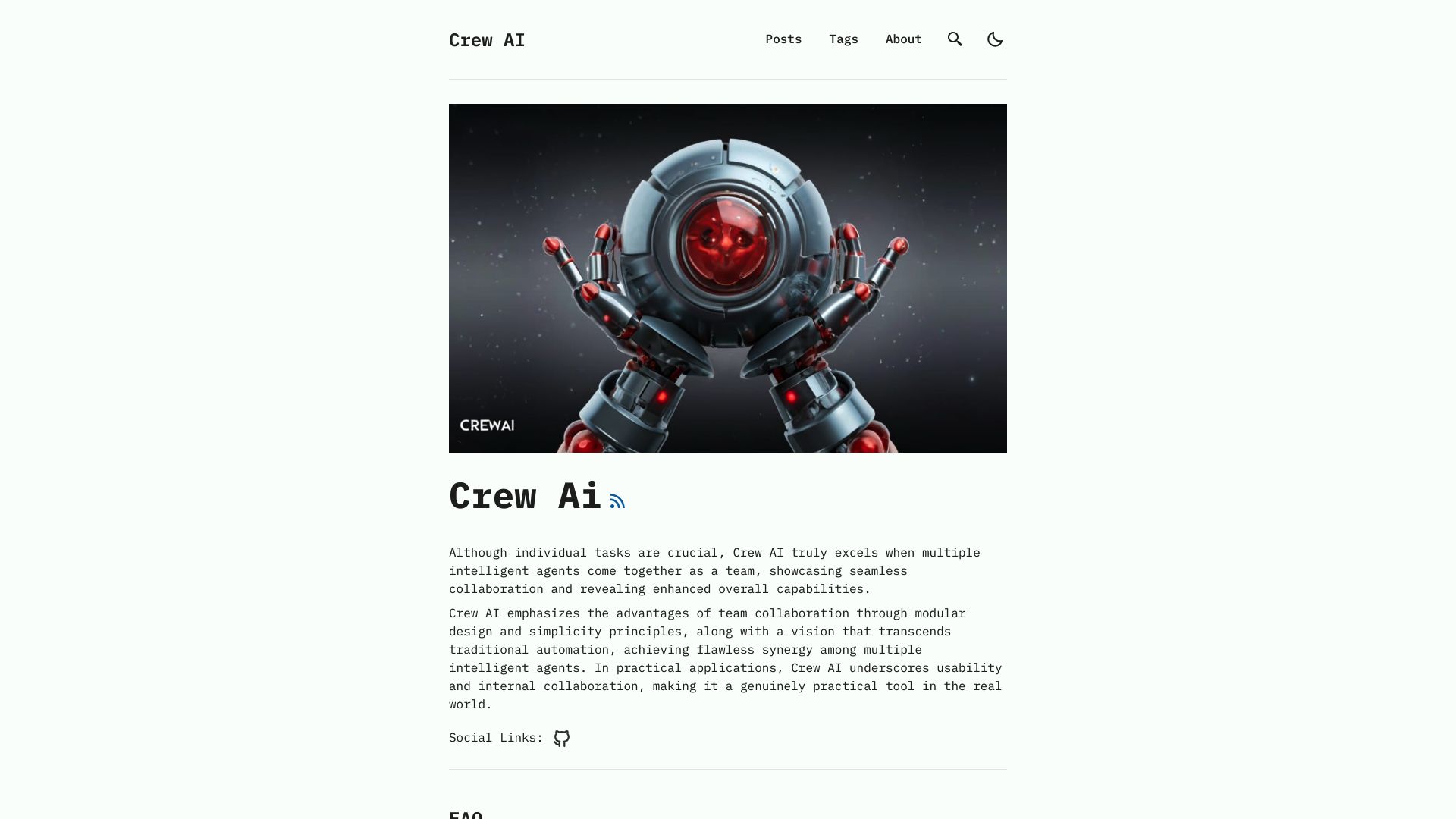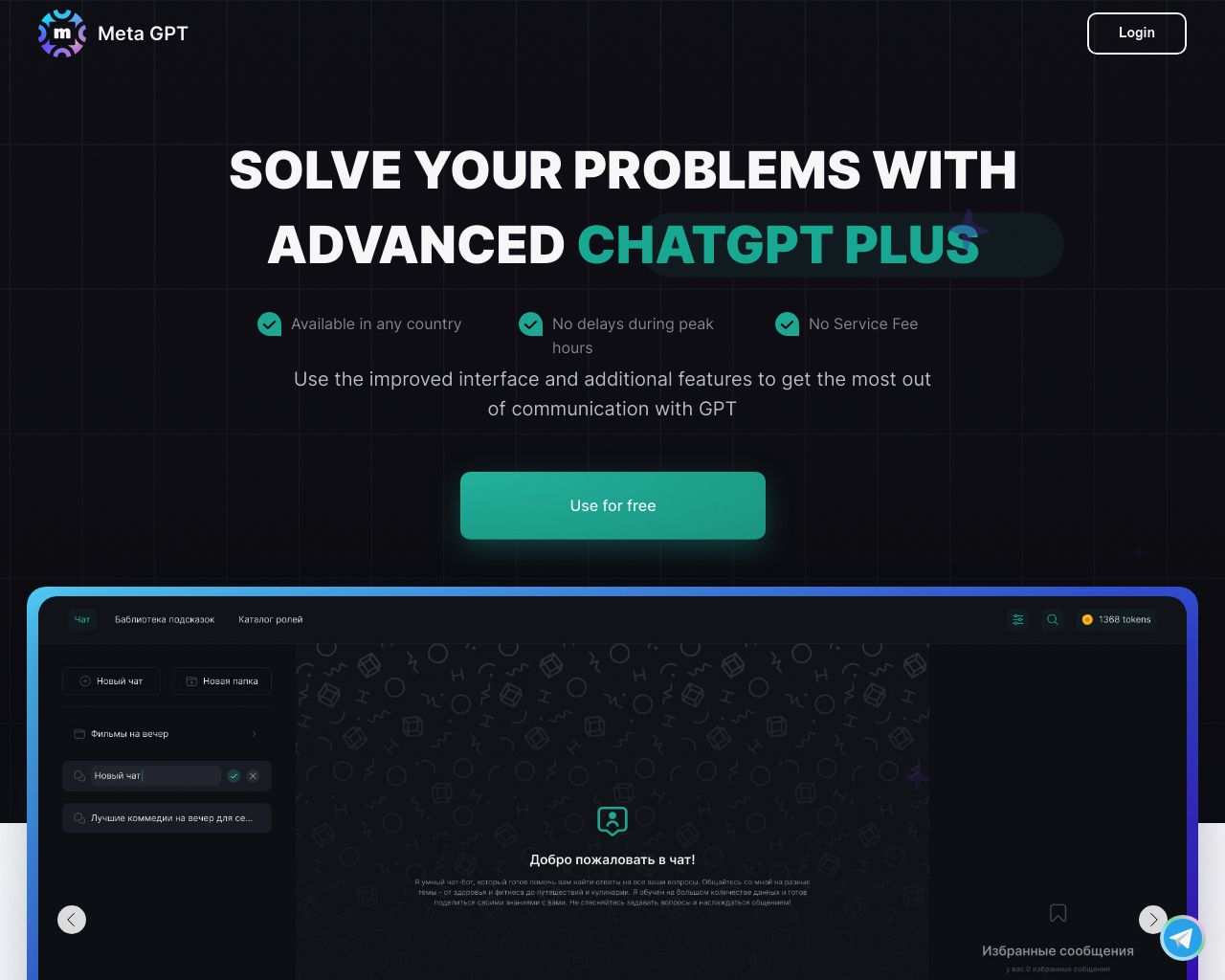AI agent orchestration platforms revolutionize how businesses tackle complex tasks, offering unprecedented efficiency and innovation. CrewAI and MetaGPT stand out as powerful open-source frameworks, each with unique approaches to multi-agent collaboration. CrewAI excels in role-based agent design, while MetaGPT simulates a software company structure. However, both platforms have limitations that impact their accessibility and enterprise readiness. This comparison delves into the strengths and weaknesses of CrewAI vs. MetaGPT, exploring their features, use cases, and potential alternatives. Whether you’re a developer seeking flexible AI frameworks or a business leader aiming to harness AI’s full potential, this analysis provides the insights needed to make an informed decision in the rapidly evolving landscape of AI agent builders.
CrewAI Overview
CrewAI empowers developers to orchestrate collaborative AI agent teams for complex task execution. This open-source framework enables the creation of specialized agents with defined roles, goals, and skills to work together in structured workflows.

CrewAI’s Python library allows developers to configure AI agents, assign tasks, and manage collaboration through customizable processes. The platform shines in its role-based agent design, where each agent possesses a clear role, goals, and backstory shaping its behavior. This approach enables autonomous task delegation and seamless collaboration between agents.
CrewAI empowers developers to orchestrate collaborative AI agent teams for complex task execution. This open-source framework enables the creation of specialized agents with defined roles, goals, and skills…
The framework integrates human-in-the-loop functionality, allowing agents to incorporate human input when needed. CrewAI supports various foundation models like GPT-3 and GPT-4, as well as local models, providing flexibility in AI implementation. The platform’s process-driven approach ensures coordinated teamwork between agents, making it suitable for tackling complex, multi-step tasks.
CrewAI’s open-source nature fosters community contributions, potentially expanding its capabilities over time. However, the platform currently lacks some features found in more comprehensive solutions, such as a visual builder or no-code editor. While it offers powerful tools for developers comfortable with Python, it may present a steeper learning curve for non-technical users seeking to create AI agents.
MetaGPT Overview
MetaGPT revolutionizes multi-agent collaboration by combining human Standardized Operating Procedures (SOPs) with advanced Large Language Models (LLMs). This open-source framework simulates a software company’s structure, assigning distinct roles to AI agents such as product managers, architects, engineers, and testers.

MetaGPT’s core philosophy, “Code = SOP(Team),” integrates established human practices into AI-driven processes. This approach enables the platform to handle complex software development tasks, producing coherent, high-quality code while reducing errors typically associated with multi-agent systems.
MetaGPT revolutionizes multi-agent collaboration by combining human Standardized Operating Procedures (SOPs) with advanced Large Language Models (LLMs).
The framework breaks down tasks into manageable subtasks, each handled by specialized agents. This assembly line paradigm ensures that each agent contributes its expertise to the overall project, resulting in more accurate and robust solutions. MetaGPT also generates comprehensive documentation throughout the development process, including requirement documents, design artifacts, and interface specifications.
While MetaGPT offers powerful collaboration capabilities, it lacks some features found in more comprehensive platforms. The framework doesn’t provide hosted agents for development or production environments, nor does it offer a visual builder or no-code editor. These limitations may impact its accessibility for users without strong technical backgrounds.
MetaGPT integrates with foundation models like GPT-3 and GPT-4, as well as local models, providing flexibility in AI capabilities. However, it doesn’t specifically mention support for Huggingface AIs or Zapier integrations. The framework supports various APIs through LangChain tools, enabling diverse integrations with external services.
For developers and technical teams seeking a powerful, open-source solution for complex AI-driven software development, MetaGPT presents a compelling option. Its unique approach to multi-agent collaboration and comprehensive documentation generation sets it apart in the AI agent builder landscape.
Feature Comparison
CrewAI and MetaGPT both offer powerful frameworks for multi-agent AI collaboration, but their approaches and feature sets differ significantly. CrewAI focuses on flexible, role-based agent design with autonomous task delegation. Its agents possess defined roles, goals, and backstories, enabling seamless collaboration. However, CrewAI lacks visual building tools and hosted environments, limiting accessibility for non-technical users.
MetaGPT takes a unique approach by simulating a software company structure, assigning specialized roles like product managers and engineers to AI agents. This framework excels at breaking down complex tasks and generating comprehensive documentation throughout the development process. MetaGPT’s integration of human SOPs enhances output quality and reduces errors. However, like CrewAI, it doesn’t offer visual builders or hosted environments, potentially limiting its appeal to users seeking low-code solutions.
Both platforms have gaps in core components and security features compared to more comprehensive solutions. Neither offers hosted agents, visual builders, or robust security measures like data encryption and OAuth. While both support foundation AI models, they lack specific integrations with services like Huggingface or Zapier. These limitations may impact their suitability for enterprise-level deployments or users requiring advanced security and integration capabilities.
Feature Comparison Table
| CrewAI | MetaGPT | SmythOS | |
|---|---|---|---|
| CORE FEATURES | |||
| Hosted Agents (Dev, Production) | ❌ | ✅ | ✅ |
| Environments (Dev, Production) | ❌ | ✅ | ✅ |
| Visual Builder | ❌ | ❌ | ✅ |
| No-Code Options | ❌ | ❌ | ✅ |
| Explainability & Transparency | ❌ | ✅ | ✅ |
| Debug Tools | ❌ | ✅ | ✅ |
| Multimodal | ❌ | ✅ | ✅ |
| Audit Logs for Analytics | ❌ | ✅ | ✅ |
| SECURITY | |||
| Constrained Alignment | ❌ | ✅ | ✅ |
| Data Encryption | ❌ | ✅ | ✅ |
| OAuth | ❌ | ✅ | ✅ |
| IP Control | ❌ | ❌ | ✅ |
| COMPONENTS | |||
| Foundation AIs | ❌ | ✅ | ✅ |
| Huggingface AIs | ❌ | ✅ | ✅ |
| Zapier APIs | ❌ | ✅ | ✅ |
| All other APIs, RPA | ❌ | ✅ | ✅ |
| Classifiers | ❌ | ✅ | ✅ |
| Logic | ❌ | ✅ | ✅ |
| Data Lakes | ❌ | ❌ | ✅ |
| DEPLOYMENT OPTIONS (EMBODIMENTS) | |||
| Deploy as API | ❌ | ✅ | ✅ |
| Deploy as Webhook | ❌ | ✅ | ✅ |
| Staging Domains | ❌ | ❌ | ✅ |
| Production Domains | ❌ | ✅ | ✅ |
| API Authentication (OAuth + Key) | ❌ | ✅ | ✅ |
| Deploy as Site Chat | ❌ | ✅ | ✅ |
| Deploy as Scheduled Agent | ❌ | ✅ | ✅ |
| Deploy as GPT | ❌ | ✅ | ✅ |
| DATA LAKE SUPPORT | |||
| Hosted Vector Database | ❌ | ❌ | ✅ |
| Sitemap Crawler | ❌ | ❌ | ✅ |
| YouTube Transcript Crawler | ❌ | ❌ | ✅ |
| URL Crawler | ❌ | ✅ | ✅ |
| PDF Support | ❌ | ✅ | ✅ |
| Word File Support | ❌ | ✅ | ✅ |
| TXT File Support | ❌ | ✅ | ✅ |
Best Alternative to CrewAI and MetaGPT
SmythOS emerges as the superior alternative to CrewAI and MetaGPT for agentic AI automation. Our platform offers unparalleled ease of use, comprehensive features, and unlimited use cases that outshine the competition.
Our intuitive drag-and-drop interface empowers users to create sophisticated AI agents without coding expertise. This visual approach streamlines development, making advanced AI capabilities accessible to a wider audience. In contrast, CrewAI and MetaGPT lack visual builders, limiting their accessibility to technical users.
SmythOS boasts an extensive feature set that surpasses both CrewAI and MetaGPT. We provide hosted environments for development and production, robust debugging tools, and support for multimodal interactions.
SmythOS boasts an extensive feature set that surpasses both CrewAI and MetaGPT. We provide hosted environments for development and production, robust debugging tools, and support for multimodal interactions. Our platform also excels in security, offering data encryption, OAuth integration, and IP control—critical components absent in CrewAI and limited in MetaGPT.
We designed SmythOS for versatility, supporting a vast array of use cases. From chatbots and APIs to scheduled agents and GPT deployments, our platform adapts to diverse business needs. This flexibility, combined with our scalable infrastructure, positions SmythOS as the ideal choice for enterprises seeking a comprehensive AI solution.
By choosing SmythOS, users gain access to cutting-edge AI capabilities, seamless integrations, and a user-friendly experience that CrewAI and MetaGPT simply cannot match. Our platform empowers businesses to harness the full potential of AI, driving innovation and efficiency across industries.
Conclusion
CrewAI and MetaGPT offer powerful frameworks for multi-agent AI collaboration, each with unique strengths. CrewAI excels in flexible, role-based agent design, while MetaGPT simulates a software company structure for complex development tasks. However, both platforms lack certain features that limit their accessibility and enterprise readiness.
SmythOS emerges as the superior choice, addressing the limitations of CrewAI and MetaGPT while offering a comprehensive suite of features. Our platform provides hosted agents, visual builders, and robust security measures, making it accessible to both technical and non-technical users. SmythOS supports multimodal interactions, problem-solving capabilities, and seamless multi-agent collaboration, enabling users to tackle complex tasks efficiently.
Unlike its competitors, SmythOS offers unparalleled deployment flexibility, allowing users to create AI agents once and deploy them across various platforms and services. This ’Create Once, Deploy Anywhere’ approach, combined with our extensive integration ecosystem of over 300,000 APIs and tools, positions SmythOS as the most versatile and powerful option for businesses seeking to harness the full potential of AI.
For those ready to revolutionize their AI workflow and experience the future of agent development, we invite you to create a free SmythOS account. With our risk-free trial and a 30-day money-back guarantee, you can explore the platform’s capabilities and see firsthand how SmythOS can transform your business processes. Don’t just adapt to the AI revolution – lead it with SmythOS.